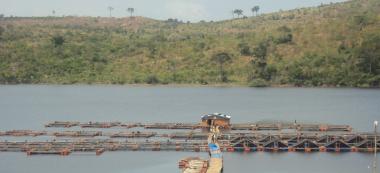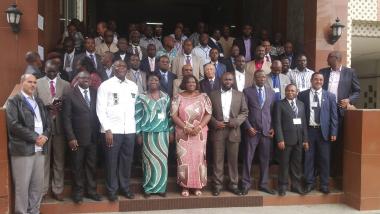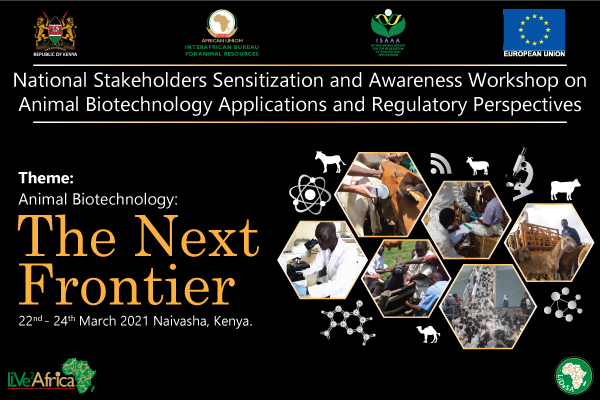
Creating awareness and awareness and facilitating the sharing of progress and opportunities in animal biotechnology is the main concern of workshop participants in Naivasha, Kenya from March 22-24, 2021. The meeting brings together researchers, regulators, decision-makers, industry players, and communicators in the animal biotechnology sector to:
- · Well-inform stakeholders on global practices in animal biotech applications
- · Strengthen inter-institutional collaborations and create synergies
- · Identify priorities at the national and regional level and agree on a draft roadmap outline
- · Develop a draft of the communication strategy
Mr. Talal Kishlaf, Officer in Charge, AU IBAR noted that “Africain governements have recognised the challenges posed by various biotic and abiotic stresses that reduce agricultural productivity. Africa's common position is to utilise biotech for improving productivity.”
In the framework of the Live2Africa project funded by the European Union, the Kenya national workshop is organised by AU-IBAR in collaboration with the Kenya National Biosafety Authority and International Service for the Acquisition of Agri-Biotech Application (ISAAA). A similar workshop is planned in Nigeria before putting together the stakeholders from the two sub-regions (East and West Africa) to share the outcomes of the two national workshops.
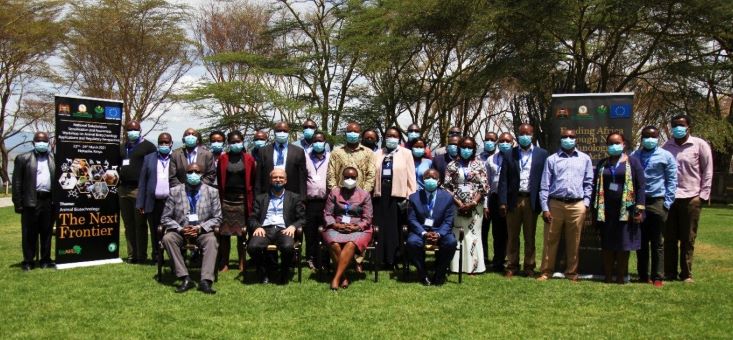 The recommendations of these meetings will help to catalyze knowledge-based decisions at the national and regional levels vis-à-vis the deployment of animal biotechnologies within AU member countries.
The recommendations of these meetings will help to catalyze knowledge-based decisions at the national and regional levels vis-à-vis the deployment of animal biotechnologies within AU member countries.
The Kenya National workshop is logical progress of the international conference series dedicated breakout session for African regulators and stakeholders in animal biotechnology. The participants, who included Kenyan and Nigerian heads of regulatory agencies, decision- makers, researchers and communicators, identified many challenges ; disjointed research activities, policy contradictions/overlaps, regulatory uncertainty and low awareness about animal biotechnology applications especially by the end-users.
Key recommendations were proposed on utilizing animal biotechnology in Africa: the need to intensify awareness creation activities among animal biotech stakeholders and, to take advantage of regional collaboration to support awareness creation by establishing regional or continental platforms or networks. In line with their key mandates of sharing knowledge on agri-biosciences (ISAAA), regulatory (National Biosafety Authority) and AU-IBAR’s leadership provision in the sustainable development of animal resources in Africa, the two partners propose to initiate stakeholder engagements in the sector to further deliberate on these recommendations. This will provide an opportunity to share experiences and lessons from global developments, encourage constructive dialogue at this early stage, and to identify priority needs from technology development, regulatory, and communication approaches needed to bring animal biotech products to market.
More about the workshop on YouTube.
AU concerns in animal biotechnology.
There is overwhelming evidence and knowledge that leadership in world economic power is based on science, technology and innovation (ST&I). For this reason the world's major economies have invested considerable resources and efforts to enhance scientific and technological base in support of their global leading industries including agriculture. Upon this premise, Africa's future survival in the highly competitive international market will depend on how well it integrates ST&I and, particularly, the rapidly evolving field of modern biotechnology in national development agendas. The African Union Heads of State and Government summit held in 2014, adopted a 10-year Science, Technology and Innovation Strategy for Africa (STISA-2024). The strategy fosters social transformation and economic competitiveness, through human capital development, innovation, value addition, industrialization and entrepreneurship. It emphasizes the need to focus on science, technology and innovation as tools of change.

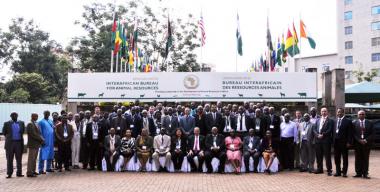
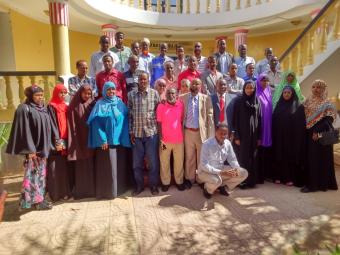
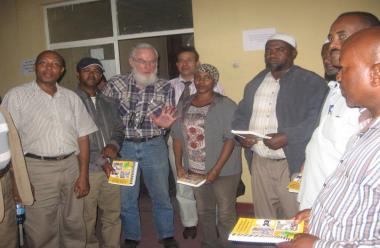
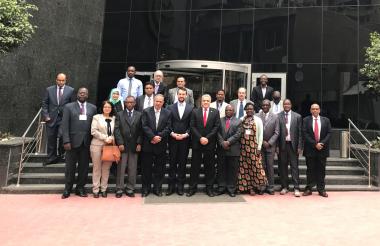
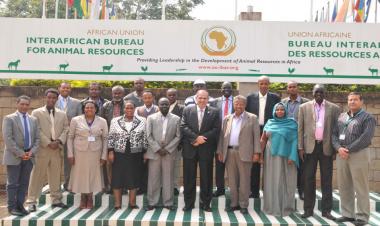
![[© 2014 AU-IBAR. Participants attending a training programme in Surveillance and Epidemiology of Trade-Related Transboundary Animal Diseases being Offered by the University of Nairobi, Faculty of Veterinary Medicine.] © 2014 AU-IBAR. Participants attending a training programme in Surveillance and Epidemiology of Trade-Related Transboundary Animal Diseases being Offered by the University of Nairobi, Faculty of Veterinary Medicine](/sites/default/files/styles/normal_size/public/2020-09/57.jpg?itok=k2u2EVX0)
